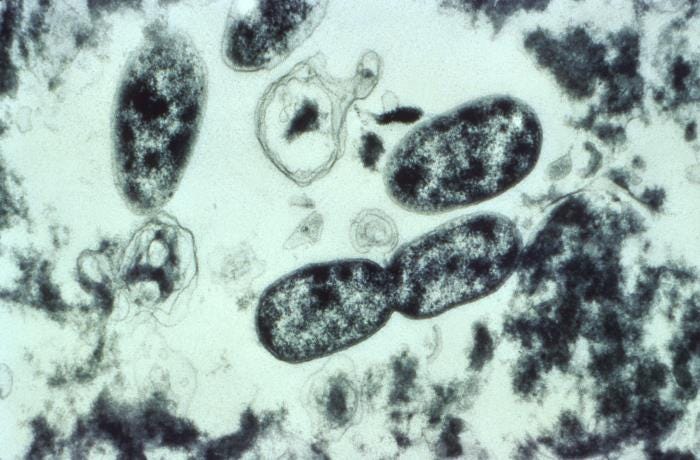Milan, Italy
Through August 19, a total of 53 confirmed cases of Legionnaires' disease, including four deaths, have been reported by the local public health authorities in Milan in the Lombardy Region of Italy since the first case was reported in April.
Most of the 47 cases (89%), were recorded in the municipality of Corsico, with six cases (11%) reported from the municipality of Buccinasco. Both municipalities are located in the metropolitan area of Milan.
Of the 53 total cases, 48 cases (91%) presented risk factors, 12 were still hospitalized, 37 cases were discharged and 4 cases died (patients over 70 years
of age, affected by comorbidities). The onset of symptoms occurred in most cases between 10 June and 9 August 2024, the date of onset of symptoms of the last identified cases.
The health authorities of the Health Protection Agency (ATS) of the metropolitan city of Milan are actively engaged in the implementation of specific epidemiological, microbiological and environmental investigations and in the implementation of prevention and control activities, aimed at preventing the emergence of new cases, in close collaboration with the Mayors of the Municipalities involved and in coordination with the Prevention Unit of the General Welfare Directorate of the Lombardy Region, with the Istituto Superiore di Sanità (ISS) and with the Ministry of Health.
Melbourne, Australia
According to the Victoria Department of Health, between 26 July and 20 August there were 114 confirmed cases, mostly in adults aged over 40 years. Most cases required hospitalization, with a number of admissions to intensive care. All cases visited or resided in metropolitan Melbourne.
Subscribe to Outbreak News TV on YouTube
The cooling tower identified as the source of this outbreak has been found. This tower was tested on 30 July 2024 and disinfected within 24 hours of that visit. Officials are confident the source has been controlled with risk to the community now removed.
Lincoln, New Hampshire
Testing conducted by the New Hampshire Department of Health and Human Services (DHHS), Division of Public Health Services (DPHS) and the New Hampshire Department of Environmental Services (NHDES) has confirmed that remediation efforts to eliminate Legionella bacteria in a cooling tower in Lincoln, New Hampshire were successful. There is no longer an elevated risk of Legionella infection from the cooling tower.
To date, DHHS has identified seven people who have been confirmed to have Legionnaire’s disease, a pneumonia caused by inhaling water droplets contaminated with Legionella bacteria, after visiting an area in downtown Lincoln in June and July. The Department continues to investigate any other diagnoses with a potential link to this specific area.
“The negative test results received today are good news and demonstrate the effectiveness of the cleaning and disinfection of the cooling tower,” said Dr. Benjamin Chan, New Hampshire State Epidemiologist. “Therefore, we do not believe there is currently elevated risk for Legionella infection from this cooling tower, and we will continue to monitor and work with the facility to ensure an appropriate management plan is in place to prevent future contamination or re-growth of the bacteria.”
Cassville, Missouri
The Missouri Department of Health and Senior Services (DHSS) is advising recent resort guests of a potential health concern for individuals that may have been in contact with a water source within the Roaring River Lodge and RV Park in Cassville, Mo. The hotel is located at 23359 State Highway 112 in Cassville.
DHSS has determined that three unassociated individuals who stayed at the Cassville resort in July of this year were diagnosed with Legionnaires' disease within 14 days after their stay.
DHSS conducted a facility assessment and collected samples. Preliminary environmental sample results indicate the presence of Legionella bacteria in the water system, with confirmed results being available later this week. The investigation is still ongoing and DHSS is actively working with the Roaring River Lodge to make improvements to the facility’s water system that will kill off Legionella in the system.
The resort has indicated they will begin notifying all recent guests who stayed in the hotel portion of the facility.
London, Ontario, Canada
The Middlesex-London Health Unit (MLHU) reports that the Legionnaires’ disease outbreak has risen to 25 cases, including one fatality.
MLHU has not yet had the source of the outbreak confirmed through laboratory testing, however any locations that show evidence of legionella bacteria through preliminary testing have been sanitized - removing any threat to the community.
Legionnaires disease is a respiratory illness caused by a bacteria called Legionella. It is characterized by high fever, chills, a dry cough, shortness of breath and can lead to pneumonia. Symptoms of Legionnaires usually begin two to ten days after encountering the bacteria.
Legionella bacteria are very commonly found in the environment, usually in water (hot tubs, cooling towers, hot water tanks, large plumbing systems or parts of an air-conditioning system). If the bacteria are then aerosolized or misted into the air (via wind or fans), humans may breathe them in and become unwell. Legionella is not transmitted from person-to-person, through public waterworks, or through the consumption of contaminated foods.





